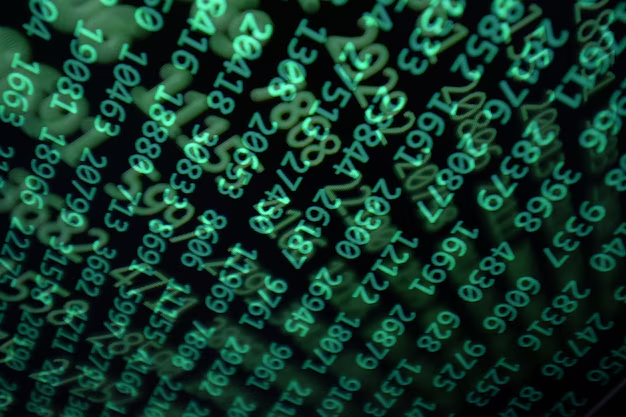Understanding Your Chase Bank Account Number: How Many Digits Are There?
In a world where digital transactions and banking dominate, knowing the specifics of your bank account details is more essential than ever. Whether you're setting up direct deposits, transferring funds, or simply trying to understand your financial statements, one detail you'll frequently encounter is your bank account number. If you're a Chase Bank customer, you might wonder, "How many digits are in a Chase bank account number?" This seemingly small detail is foundational to your financial activities, and understanding it can make managing your bank accounts smoother and more efficient. In this guide, we dive into the structure, use, and importance of your Chase bank account number.
📄 What Is an Account Number and Why Is It Important?
An account number is a unique identifier assigned to each bank account you open. This number distinguishes your account from others and is essential for processing transactions accurately. Whether for personal, joint, or business accounts, having a specific account number for each is crucial for maintaining order and precision in the banking system.
Key Functions of Your Account Number
- Identification: The primary role of your account number is to identify your bank account uniquely.
- Transactions: Used in direct deposits, electronic transfers, and check processing.
- Account Management: Allows both you and bank staff to locate your account details quickly and efficiently.
🤔 How Many Digits Are in a Chase Bank Account Number?
Typically, a Chase bank account number is a nine-digit number. However, it's not uncommon for Chase to issue bank account numbers with a range from 9 to 12 digits, reflecting internal bank branching specifics and growth. This size variation exists because Chase Bank, like many large financial institutions, has evolved and expanded to accommodate more customers.
Why the Variability?
- Historical Changes: Over time, as Chase Bank grew through mergers and acquisitions, different legacy systems contributed to slight variations in account number length.
- Segmented Numbering: Different branches or specific types of accounts might have a slightly different numbering system to avoid overlaps and ensure clarity.
🏦 The Structure of a Chase Bank Account Number
While an account number’s precise structure can vary, it typically adheres to a consistent format to ensure interoperability between systems:
- Branch Code (if applicable): In some cases, the first few digits might signify the branch where the account was opened.
- Account Identifier: The core sequence that uniquely marks your account within the Chase banking system.
- Checksum Digit: For additional security, some account numbers might include an extra digit for validation purposes.
🔑 How to Find Your Chase Bank Account Number
Knowing where to find your account number is critical for effective account management:
On Your Checks
One common place to locate your Chase bank account number is on your bank-printed checks. It typically appears as the second series of digits along the bottom, following the nine-digit routing number.
Through Online Banking
- Log into Your Account: Navigate to the Chase online portal or mobile app.
- Select the Account: Go to the 'Accounts' tab to view the specifics of each listed account.
- View Details: Click on 'Account Details' or 'View Routing and Account Number' to see the numeric details.
Chase Statement
Monthly bank statements, whether electronic or printed, contain your account number along the top of the statement details.
🔍 Related Considerations for Chase Bank Customers
Understanding your account number is vital, but there are other related aspects to consider that can further enhance your banking experience:
Security Concerns
Guard your account number diligently. Never share it unnecessarily or in unsecured settings to prevent fraud or unauthorized access.
Routing Numbers
A partner to your account number is the routing number, a nine-digit bank identification code crucial for routing funds correctly between financial institutions. Always ensure you have the correct routing number for your transaction type (e.g., wire transfers may require a different number).
International Transactions
If you're engaged in cross-border transactions, remember to use your International Bank Account Number (IBAN) and SWIFT/BIC codes, as these are specifically required for international banking outside the US.
✨ Chase Bank Account Number: Quick Reference
Chase Bank Account Number Insights:
- Generally nine digits, but can range up to twelve.
- Found on checks, online banking, and statements.
- Important for secure transactions and account identification.
| Aspect | Details |
|---|---|
| Typical Length | 9 to 12 digits |
| Printed On | Checks, Statements |
| Use Cases | Deposits, Online Transfers |
| Partner Identifier | Bank Routing Number |
| Security Tip | Share with caution |
🤝 Making the Most of Your Chase Account
Understanding your Chase bank account number is more than just knowing a few digits. It empowers you to:
- Conduct transactions securely and efficiently.
- Avoid potential errors in fund transfers or associated fees.
- Enhance your ability to monitor and manage your financial activities.
By being informed about your account number and related banking identifiers, you gain greater control over your financial dealings and can navigate the complex world of banking with confidence.
It's always practical to periodically review this information and ensure you know where to find these crucial details. Whether you're a seasoned Chase customer or managing a new account, being knowledgeable about these elements helps optimize your banking interactions and secure your financial health.

Related Topics
- a Chase Bank Near Me
- Are Banks Open Today Chase
- Are Chase Banks Open Today
- Can Chase Bank Give Personal Loans
- Can Chase Bank Notarize Documents
- Can I Cash a Check At Chase Bank
- Can I Cash a Savings Bond At Chase Bank
- Can I Cash Savings Bonds At Chase Bank
- Can I Close a Chase Bank Account Online
- Can I Close My Chase Bank Account Online
